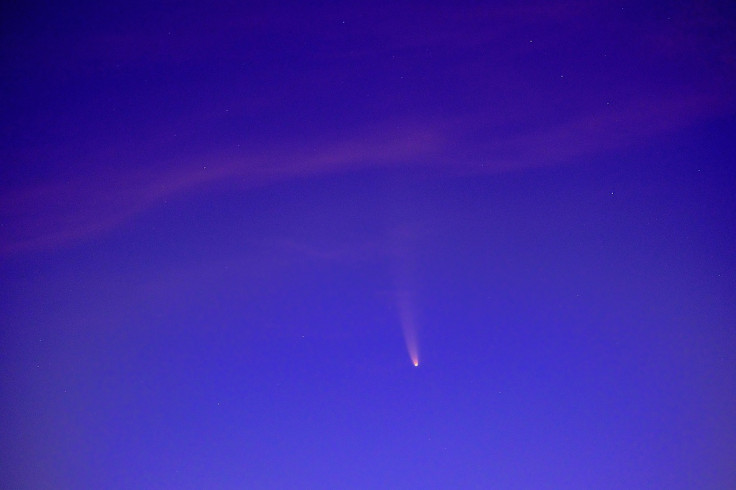Planet Labs Stock Skyrockets 215% as Investors Bet on AI-Powered Satellite Revolution — But Is It Too Late to Buy In?
With AI-enhanced Earth observation, Planet Labs is leading low-cost satellite imaging, supporting global monitoring, defence, and agriculture — raising questions about timing for investors

Investors are increasingly recognising the potential of Planet Labs, a San Francisco-based satellite imaging and data analytics company, which has seen its stock skyrocket by over 215% to $12.84 per share since the end of 2024. The one-year return stands at an impressive 458.26%, marking it as one of the standout performers in the aerospace and defence sector this year.
On 28 October 2025, CNBC's Brian Sullivan interviewed Ashley Johnson, President and CFO of Planet Labs. She stated, 'We are starting to see investors wake up to the potential of our business.' Johnson explained that the company leverages artificial intelligence (AI) while its satellites continuously document and monitor activity across the planet.
She added that shares of this Earth observation leader is expected to rise further in the AI-driven satellite revolution.
The Investment Case: Low Cost, High Impact
Planet Labs is a $4.6 billion public benefit corporation with a mission to image the Earth daily. Currently, it can deliver near-real-time imaging of entire countries. The company's competitive advantages are rooted in AI integration, comprehensive global monitoring, and its history of low-cost innovation.
Johnson highlighted that the cost to produce and launch a satellite is approximately $300,000—thanks to Silicon Valley's cutting-edge innovation. This affordability allows the company to scale its fleet and analyse changes in infrastructure, objects, and activities on an unprecedented scale.
Global monitoring is central to Planet Labs' strategy. Its data supports not only environmental and climate initiatives but also early intelligence, threat detection, and defence. The company's satellite imagery also benefits agriculture by enabling timely crop monitoring, field insights, compliance checks, and sustainability assessments.
Strategic Partnerships and Defence Contracts
Planet Labs' co-founder, CEO, and Chairperson Will Marshall, underscores the increasing demand for Earth intelligence. The company has secured notable awards and collaborations, including partnerships with Germany, NATO, and the U.S. Department of Defense.
Marshall emphasised that Planet Labs plays a vital role in tackling global challenges and enhancing peace and security through its satellite data.
Strong Financial Performance
In the second quarter of fiscal 2026 (ending 31 July 2025), Planet Labs reported a 20% year-over-year increase in revenue, reaching a record $73.4 million. Its net loss narrowed by 42%, down to $22.6 million compared with the same quarter last year.
At quarter's end, the company's backlog stood at $736.1 million—up 245% compared to the previous year. Notably, free cash flow (FCF) for the first half of the year reached $54.3 million, reversing a previous negative FCF of $40 million.
Johnson commented, 'We are pleased to see our investments starting to generate meaningful revenue growth, and our substantial backlog provides strong visibility into fiscal year 2027 and beyond.'
A Clear Growth Advantage
For growth investors seeking exposure to the aerospace and defence sectors, Planet Labs presents an attractive opportunity. Its critical role in national security and defence, combined with multiple growth pathways, positions it for a swift move toward profitability.
The market potential for Earth Observation (EO) is enormous. According to the September 2024 report, Charting the Future of Earth Observation: Technology Innovation for Climate Intelligence, the economic value of EO could exceed $700 billion by 2030.
Planet Labs is well-positioned to capitalise on this vast addressable market. Its relatively low share price, coupled with the company's technological advancements and expanding customer base, suggests it could see its stock price surge again.
© Copyright IBTimes 2025. All rights reserved.





















